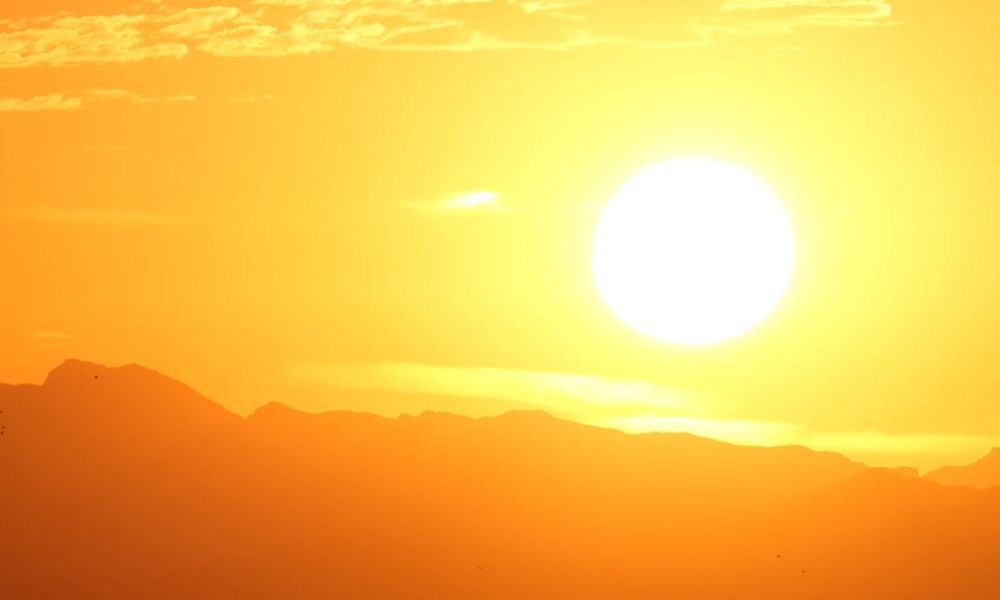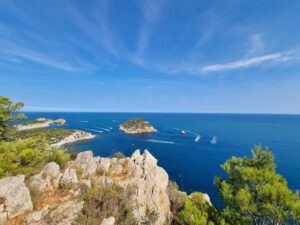AEMET issues another yellow alert for high temperatures across Marina Alta
The state meteorological agency advises that the next few nights could be uncomfortable as temperatures in some places might not drop below 25°c.

Monday 17th July 2023
Mike Smith
The state meteorological agency AEMET has issued another yellow alert warning for the potential for maximum temperatures to touch 38°c in several areas of the Marina Alta region on Tuesday.
The advisory is valid between 13:00 and 20:59 on Tuesday 18th July and warns that maximum temperatures could reach 38°c in many places in our region and could touch 40°c in some inland areas as the so-called ‘Charon Heat Storm’ sweeps up from north Africa and into southern Europe, affecting not only Spain but also Italy and Greece.

This latest heatwave, hot (quite literally) on the heels of ‘Cerberus’ which brought record temperatures to many parts of the Mediterranean region, is expected to bring even hotter temperatures which could reach well above 45°c in parts of Spain, Italy and Greece and could even break the highest temperature ever since records began, 48.8°c recorded in Syracuse, Sicily on August 11th 2021.
Minimum temperatures are also likely to be very high, causing these uncomfortable “tropical nights” temperatures could remain around 25°c or above. Already these have been affecting our sleep patterns which the port zone of Xàbia recording a minimum night-time temperature of 26.4°c on Saturday/Sunday night.
How to deal with high temperatures
- Stay indoors as much as possible. Close the blinds, curtains and shutters to block out direct sunlight and shut windows during the hottest part of the day to keep out the warm air, only opening them when the outside feels cooler than the inside.
- Drink plenty of fluids, even if you don’t feel thirsty. However, limit your alcohol intake as it not only causes dehydration but also makes it difficult to sleep in already uncomfortable night-time conditions.
- Eat light meals, especially those food types that contain a high water content such as strawberries, cucumber, celery and lettuce. Avoid using the oven or hob to cook as their use can heat up the house.
- Schedule outdoor activities carefully. If you have to go outside, stick to the shade, especially when the sun is at its strongest (11:00-15:00) and avoid direct sunlight. Regularly reapply sunscreen, using at least SPF30 protection.
- Pace yourself. Be aware of the signs of heat stroke (throbbing headache; confusion; nausea; dizziness, amongst others) and heat exhaustion (heavy sweating; weakness or tiredness; cool, pale, clammy skin; fast, weak pulse; and muscle cramps, amongst others).
- Don’t try to exercise or do a lot of activities outdoors when it’s hot. Going for a run in the midday run risks dehydration, heat exhaustion and heat stroke.
- Wear loose, lightweight, light-coloured clothing and a wide brimmed that protects the whole head, including the back of the neck. Baseball caps are not effective protection.
- At night, remember that heat rises so, if it is possible, sleep in the lowest level of your home.
- Switch off all electrical items that are not needed. Even in stand-by mode, they can generate heat.
- Take a cool shower before going to bed. Drink a glass of cold water before turning in and keep another one close by.





